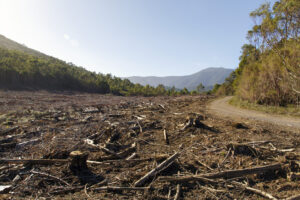Why pick green power under new pricing model?
You would think that, with the introduction of a carbon price, the gap between the cost of coal-fired electricity and the cost of renewable energy would close, but, at least if you are an ActewAGL customer, you would be wrong. Surprisingly, despite not facing a carbon bill for the production of green power, the price difference between ActweAGL’s carbon-intensive electricity and its green power will remain at 7.5c per kWh. The question must be asked: is ActewAGL using the carbon price to gouge its green-power customers by charging the carbon price on the renewable energy it supplies?
Related documents
Between the Lines Newsletter
The biggest stories and the best analysis from the team at the Australia Institute, delivered to your inbox every fortnight.
You might also like
Dutton’s nuclear push will cost renewable jobs
Dutton’s nuclear push will cost renewable jobs As Australia’s federal election campaign has finally begun, opposition leader Peter Dutton’s proposal to spend hundreds of billions in public money to build seven nuclear power plants across the country has been carefully scrutinized. The technological unfeasibility, staggering cost, and scant detail of the Coalition’s nuclear proposal have
Five priorities for the next parliament if we want a liveable Australia
Climate and nature crises won’t pause while politics plays out.
The system is working, but big parties must heed voters and engage with minor parties
Tasmanians keep voting for a power-sharing parliament over the wishes of the major parties.



